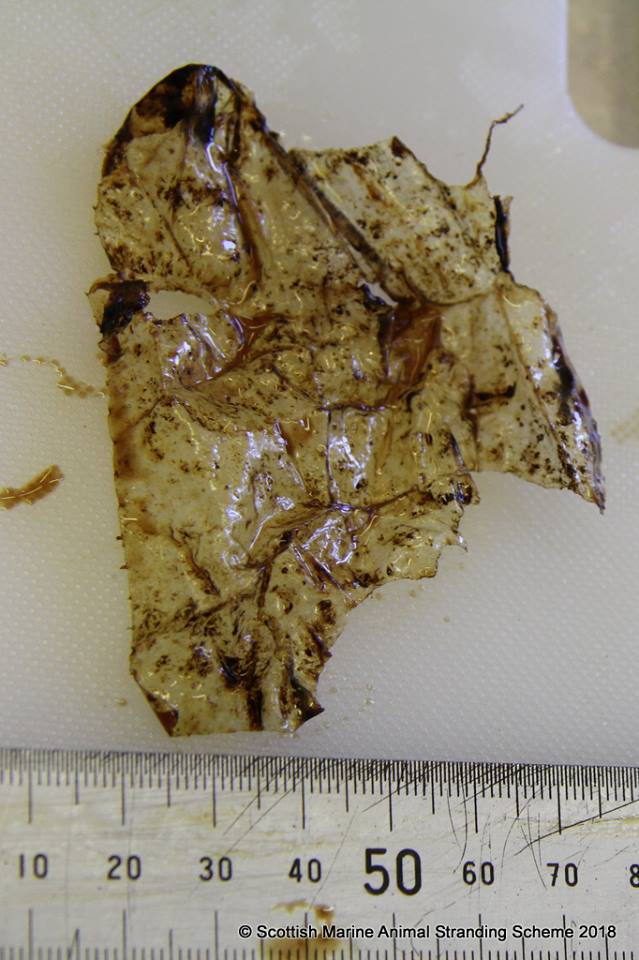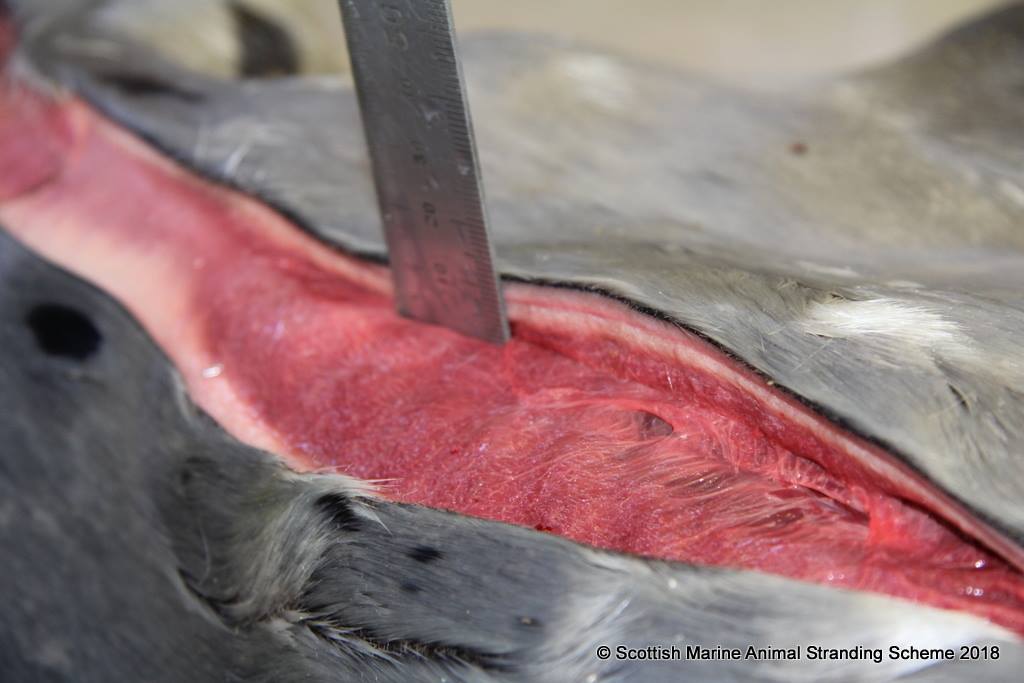THE death of a baby seal found washed up on the Scottish coast may have been caused by a chunk of plastic found lodged in its stomach.
The body of the pup, thought to be less than a year old, was found on rocks at Waternish, Skye, last Thursday.
Examination revealed the small piece of plastic, roughly the size of a sweetie wrapper, which was blocking the exit from the stomach.
Experts from the Scottish Marine Animal Stranding Scheme (SMASS), carried out the necropsy on Tuesday.
Earlier this year, a study revealed how two out of three samples of water taken from Scotland’s beaches contained traces of plastic.
SMASS posted an update on their Facebook page yesterday (wed), alongside images of the plastic which was found.
They stated: “We necropsied an unusual case yesterday- a juvenile harp seal (Pagophilus groenlandicus) found dead stranded on Skye with a small fragment of plastic in its stomach.

“Scotland is outside the normal range for this ice-associated species, although ‘vagrant’ animals such as this have been seen this far south before.”
They added: “The carcass was moderately autolysed [self-digested], dehydrated and in emaciated condition – not a well-thriven animal at all.
“We saw evidence of sepsis, no gross of trauma, a low parasite burden and it hadn’t fed recently.”
The report revealed: “There was a small piece of compacted plastic, roughly 6cm square, lodged in the stomach, occluding the pyloric sphincter (the part of the stomach which empties into the intestines).
“There was mild ulceration around the impaction site, indicating the fragment had been stuck in place for some time and could have potentially impaired normal functioning of the stomach emptying.
“The upper part of the gut was also abnormal – friable {crumbling] and haemorrhagic – suggesting a degree of enteritis. This could be linked to the obstruction caused by the plastic foreign body.”

Animal lovers took to the post to leave messages with some urging the government to do more about pollution.
Linda Vasquez said: “Poor baby. Never had a chance.”
Elaine Whitelaw wrote: “Such a waste because of our waste.”
And Maxine Chavner said: “Sad, sad, sad and so avoidable. It is such a simple thing to stop, yet Government’s recalcitrance, based one suspects on pressure from the petrochemical industry, is astounding.”
Community Facebook page Skye Marine Matters said: “Seeing the plastic lodged in the stomach was yet another reminder of the impact of plastic pollution in the marine environment.
“Death due to plastic ingestion appears thankfully incredibly rare in cetaceans and seals, but in this case it is plausible this hungry pup mistook this small bit of floating plastic for food.
“Once in the stomach, it would not be broken down, and became partially lodged in the narrow opening into the intestine.
“A healthy fit, pup would probably have been able to safely manage ingesting a fragment of plastic this size, but in an already compromised animal it could have been influential in its death.

“We are in the process of running additional tests, but this case again highlights the problem of marine debris floating around in our oceans – for a weakened seal pup such as this, even a piece of plastic the size of a sweet wrapper is potentially fatal.”
The devastating discovery comes just months after concern over pollution in Scotland was raised by Greenpeace following a recent study.
Scientists took 49 samples from waters around islands including Rum, Mull and Tiree as well as Loch Alsh, Loch Linnie, Loch Ness and the Firth of Forth.
They later found that 31 samples contained microplastics.
Earlier this year, the Scottish Government announced plans to ban the sale and manufacture of plastic-stemmed cotton buds following concerns about the number being washed up on beaches after being flushed down toilets.
In 2016 a killer whale, nicknamed Lulu, died after becoming entangled in a creel rope on the Isle of Tiree in the Hebrides.
SMASS experts said she was the “most contaminated” ever recorded in the species after being exposed to shocking levels of banned chemicals.
